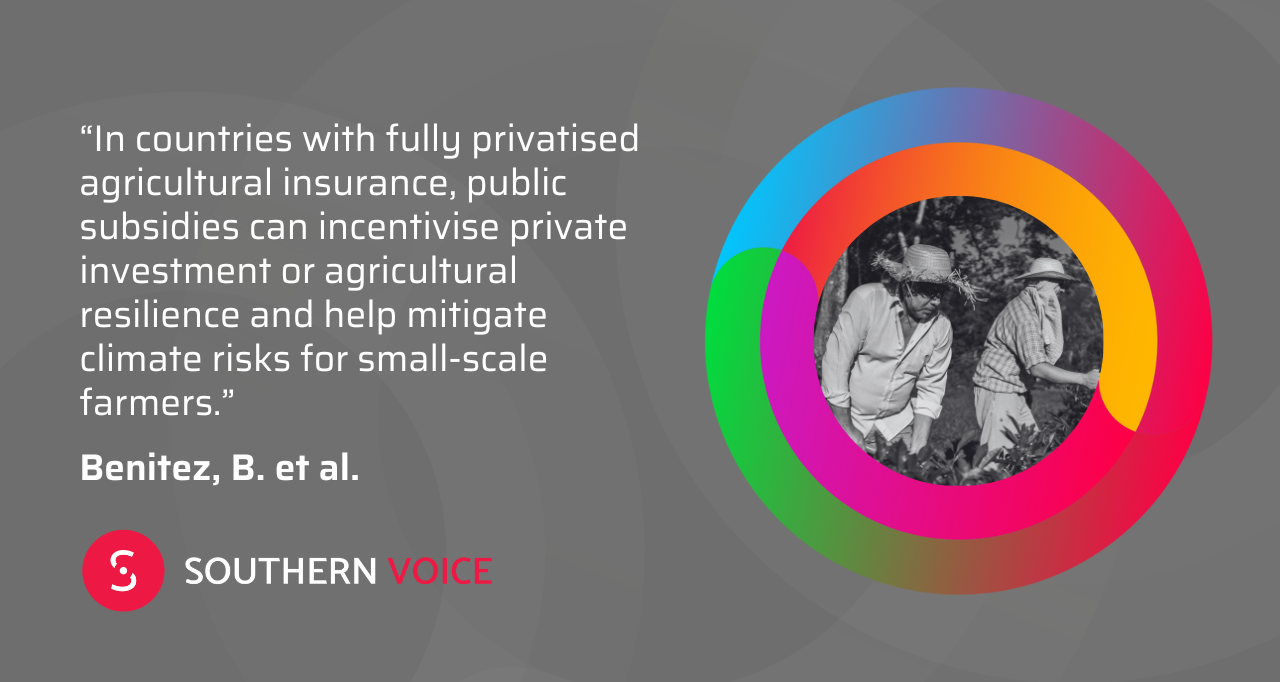Several South-South partnerships are perceived as more economical, effective and favourable compared to North-South aid relations.
The increasing severity and frequency of drought driven by climate change Is significantly impacting agriculture. Drought causes social and economic damage, increases the risk of default, and reduces the value of assets linked to agricultural production. This is particularly detrimental to Global South countries, where agriculture supports many people’s livelihoods.
This article aims to investigate the effect of climate change-induced droughts on financial systems, using Paraguay as a case study. A Structural Vector Autoregressive model (SVAR) was used to understand the spreading dynamic of climate shocks with impulse-response functions. Findings indicate that a drought shock results in more than USD 500 million increase in modified credits in Paraguay after 3 years, and that targeted financial measures can prevent farmers’ credit profiles from default.
The article offers actionable recommendations aligned with SDG 13 (climate action) and SDG 8 (decent work and economic growth), and Economic Growth, aiming to contribute towards a global financial system that works for all, as envisioned in the Pact for the Future.


